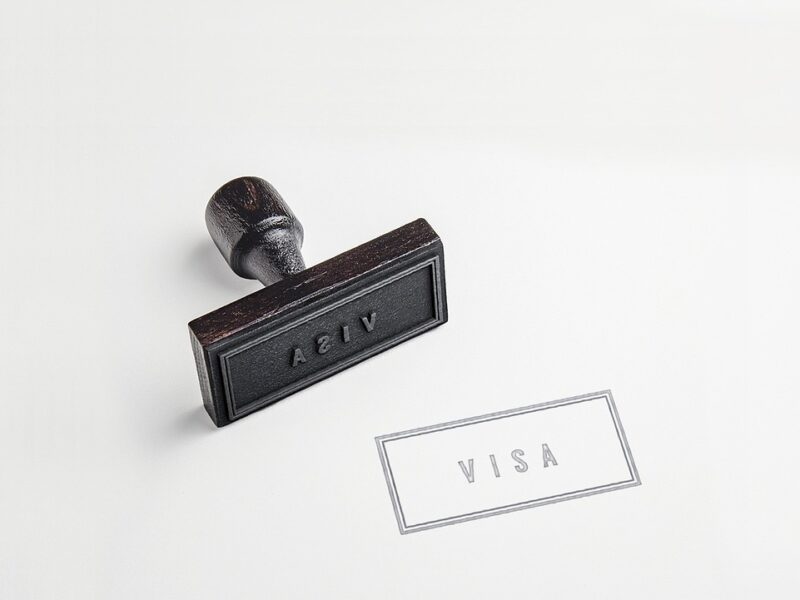Canada Student Visa Made Easy: Everything You Need to Know in 2025!
H2: Introduction to Studying in Canada
- H3: Why Canada is a Top Choice for International Students
- H3: What’s New in 2025?
H2: What is a Canada Student Visa?
- H3: Definition and Purpose
- H3: Study Permit vs. Visa: Know the Difference
H2: Eligibility Requirements in 2025
- H3: Acceptance Letter from a Designated Learning Institution (DLI)
- H3: Proof of Financial Support
H2: Step-by-Step Application Process
- H3: Step 1: Gather Your Documents
- H3: Step 2: Apply Online or on Paper
H2: Required Documents Checklist
- H3: Academic Transcripts and Certificates
- H3: Language Proficiency Test Results (IELTS/TOEFL)
H2: Financial Proof and How Much You Need
- H3: Tuition and Living Expenses
- H3: Acceptable Financial Documents
H2: Biometrics and Medical Examination
- H3: When Biometrics are Required
- H3: What to Expect During the Medical Exam
H2: How Long Does It Take to Get a Canada Student Visa in 2025?
- H3: Standard Processing Times
- H3: Tips to Speed Up Your Application
H2: Common Mistakes to Avoid
- H3: Incomplete Applications
- H3: Inconsistent Financial Information
H2: Working While Studying in Canada
- H3: On-Campus vs. Off-Campus Work
- H3: Work Hours and Regulations
H2: Post-Graduation Work Opportunities
- H3: Post-Graduation Work Permit (PGWP)
- H3: Transitioning to Permanent Residency
H2: Canada Student Visa Rejection Reasons
- H3: How to Handle a Refusal
- H3: Tips to Reapply Successfully
H2: Best Provinces for International Students
- H3: Ontario and British Columbia
- H3: Quebec and Atlantic Canada
H2: Trusted Consultants and Resources
- H3: IRCC Website and Tools
- H3: Recommended Immigration Consultants
H2: Final Tips for a Smooth Experience
- H3: Plan Ahead and Stay Organized
- H3: Join Online Communities for Support
H2: Conclusion
H2: FAQs (Frequently Asked Questions)
Canada Student Visa Made Easy: Everything You Need to Know in 2025!
Introduction to Studying in Canada
Why Canada is a Top Choice for International Students
Canada is more than maple syrup and hockey. It’s a dream destination for students from around the world. With world-class universities, vibrant multicultural cities, and stunning natural beauty, Canada offers a rich blend of education and lifestyle. Whether you’re into tech, arts, or healthcare, you’ll find a program that suits your goals.
What’s New in 2025?
In 2025, Canada has simplified its student visa process, increased digital support, and shortened processing times. Thanks to IRCC’s (Immigration, Refugees and Citizenship Canada) new online platform upgrades, getting your visa is now quicker and more transparent.
What is a Canada Student Visa?
Definition and Purpose
A Canada Student Visa, officially called a study permit, allows foreign nationals to live and study in Canada for a specified duration. It’s your golden ticket to access Canadian education legally.
Study Permit vs. Visa: Know the Difference
Confused? You’re not alone. The study permit lets you stay and study, while the visa (TRV or eTA) allows you to enter Canada. Think of the permit as your membership card and the visa as the front door key.
Eligibility Requirements in 2025
Acceptance Letter from a Designated Learning Institution (DLI)
Before you apply, you must have an acceptance letter from a Canadian DLI. Not every school qualifies, so double-check the official IRCC list here.
Proof of Financial Support
You need to show that you can cover tuition fees and living expenses for at least one year. This includes housing, food, travel, and return transport.
Step-by-Step Application Process
Step 1: Gather Your Documents
Make sure you have:
- Letter of acceptance from a DLI
- Proof of funds
- Passport
- Passport-sized photos
- Statement of purpose (SOP)
Step 2: Apply Online or on Paper
It’s 2025, so applying online is faster and more efficient. You’ll need to create an account on the IRCC portal and upload your documents.
Required Documents Checklist
Academic Transcripts and Certificates
Include your high school or college transcripts, diplomas, and academic references. These help prove you meet the academic requirements.
Language Proficiency Test Results (IELTS/TOEFL)
Most Canadian schools require proof of English or French proficiency. For English, aim for an IELTS score of at least 6.0.
Financial Proof and How Much You Need
Tuition and Living Expenses
In general, you’ll need to show at least:
- $20,000 CAD for Quebec or
- $10,000 CAD for other provinces (excluding tuition)
Acceptable Financial Documents
Use:
- Bank statements
- GICs (Guaranteed Investment Certificates)
- Scholarship letters
- Sponsor letters (if someone is funding you)
Biometrics and Medical Examination
When Biometrics are Required
You’ll likely need to visit a Visa Application Centre (VAC) to give fingerprints and a photo. It’s mandatory for most applicants.
What to Expect During the Medical Exam
If your program lasts over 6 months or you’re from certain countries, a medical exam by a panel physician is required. It’s mostly routine—think of it like a school physical.
How Long Does It Take to Get a Canada Student Visa in 2025?
Standard Processing Times
Processing usually takes 6 to 8 weeks, but it varies by country.
Tips to Speed Up Your Application
- Apply early (at least 3 months in advance)
- Submit complete and clear documents
- Avoid frequent email updates (they slow things down!)
Common Mistakes to Avoid
Incomplete Applications
Missing even one document can delay or ruin your application. Use a checklist!
Inconsistent Financial Information
Double-check that your bank details, sponsor letters, and SOP match up. Discrepancies raise red flags.
Working While Studying in Canada
On-Campus vs. Off-Campus Work
International students can work:
- On-campus: No permit needed
- Off-campus: Up to 20 hours per week during the semester
Work Hours and Regulations
In 2025, temporary rules might allow more hours off-campus during holidays. Keep an eye on IRCC updates.
Post-Graduation Work Opportunities
Post-Graduation Work Permit (PGWP)
After graduating, apply for a PGWP to work in Canada for up to 3 years. It’s a key step if you plan to stay longer.
Transitioning to Permanent Residency
Programs like Canadian Experience Class (CEC) or Provincial Nominee Program (PNP) allow you to settle permanently. Your student journey could lead to a new home.
Canada Student Visa Rejection Reasons
How to Handle a Refusal
Got rejected? Don’t panic. You can:
- Request notes through GCMS
- Reapply with a stronger case
Tips to Reapply Successfully
Focus on:
- Clear SOP
- Strong financial proof
- Showing ties to your home country
Best Provinces for International Students
Ontario and British Columbia
These provinces have top-ranked universities and strong job markets.
Quebec and Atlantic Canada
Lower tuition fees and great support programs for international students make these attractive too.
Trusted Consultants and Resources
IRCC Website and Tools
Always start with the official government site: Canada.ca
Recommended Immigration Consultants
Only work with RCIC-licensed consultants like:
Final Tips for a Smooth Experience
Plan Ahead and Stay Organized
Create a folder, checklist, and timeline. Trust us—it saves headaches later.
Join Online Communities for Support
Facebook groups, Reddit threads, and YouTube channels offer real-time advice from real students.
Conclusion
Canada has rolled out the red carpet for international students in 2025. With streamlined processes, more digital tools, and better support, getting a student visa has never been easier. Just plan smart, prepare early, and you’ll be on your way to a top-tier Canadian education. 🍁
FAQs (Frequently Asked Questions)
1. Can I bring my family with a Canada student visa?
Yes, you can apply for a spouse open work permit or a dependent study visa for your children.
2. Is the IELTS mandatory for a student visa?
Not always, but most DLIs require IELTS or equivalent. Check your institution’s language policy.
3. Can I study part-time on a student visa?
Nope! You must be enrolled full-time at a DLI to keep your study permit valid.
4. What happens if my visa expires while I’m still studying?
You must apply for a renewal before it expires. Don’t leave it till the last minute.
5. Can I switch schools after arriving in Canada?
Yes, but only if the new school is also a DLI and you update IRCC.


